-
 Bitcoin
Bitcoin $117,462.7870
-0.20% -
 Ethereum
Ethereum $2,944.1642
-0.74% -
 XRP
XRP $2.7525
-2.36% -
 Tether USDt
Tether USDt $1.0003
-0.02% -
 BNB
BNB $686.3272
-1.22% -
 Solana
Solana $160.8391
-1.71% -
 USDC
USDC $0.9999
-0.01% -
 Dogecoin
Dogecoin $0.1968
-4.47% -
 TRON
TRON $0.3021
-0.99% -
 Cardano
Cardano $0.7127
-2.47% -
 Hyperliquid
Hyperliquid $47.2712
1.78% -
 Stellar
Stellar $0.4051
2.96% -
 Sui
Sui $3.3907
-1.98% -
 Chainlink
Chainlink $15.0738
-2.39% -
 Bitcoin Cash
Bitcoin Cash $505.7198
-4.98% -
 Avalanche
Avalanche $20.9861
-0.25% -
 Hedera
Hedera $0.1998
-0.19% -
 UNUS SED LEO
UNUS SED LEO $9.0798
-0.12% -
 Shiba Inu
Shiba Inu $0.0...01314
-2.37% -
 Toncoin
Toncoin $3.0109
0.16% -
 Litecoin
Litecoin $93.0662
-2.32% -
 Polkadot
Polkadot $3.8982
-2.60% -
 Monero
Monero $330.3859
-0.88% -
 Dai
Dai $0.9998
-0.02% -
 Ethena USDe
Ethena USDe $1.0004
-0.04% -
 Uniswap
Uniswap $8.4088
-4.36% -
 Pepe
Pepe $0.0...01225
-2.05% -
 Bitget Token
Bitget Token $4.3871
-2.72% -
 Aave
Aave $300.3442
-0.56% -
 Bittensor
Bittensor $382.5815
-4.29%
Should you reduce your position when the volume rebounds to the upper track in the descending channel?
When price hits the upper track of a descending channel with high volume, consider reducing exposure to manage risk and lock in gains.
Jul 12, 2025 at 05:00 pm
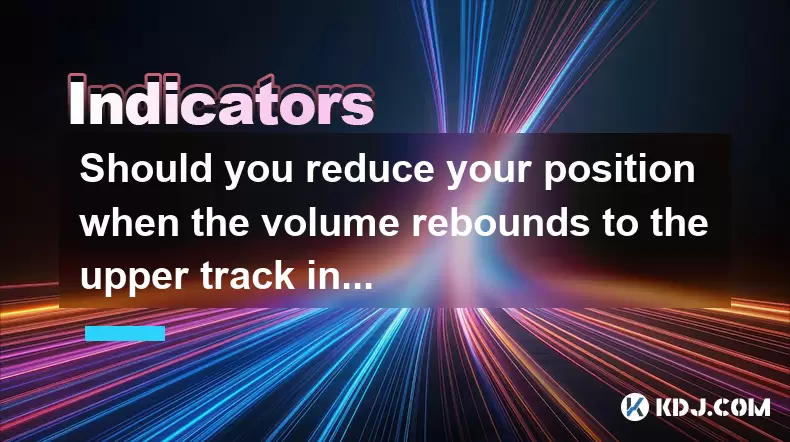
Understanding the Descending Channel
A descending channel is a technical analysis pattern formed by drawing two parallel trendlines: one connecting the swing highs and another connecting the swing lows. The upper trendline acts as resistance, while the lower trendline serves as support. In a healthy downtrend, prices tend to bounce between these boundaries.
When analyzing this structure, traders often look for signs of strength or weakness based on how price interacts with the channel lines. A rebound to the upper track may indicate temporary bullish pressure but doesn't necessarily mean a reversal is imminent. This scenario raises the question: should you reduce your position when such a rebound occurs?
Important Note: Volume plays a critical role in confirming the strength of any move within a descending channel.
The Role of Volume in Confirming Price Action
Volume is a crucial factor in understanding whether a price move has conviction behind it. When volume rebounds significantly at the upper boundary of a descending channel, it can signal increased buying interest. However, this doesn’t always equate to a reversal.
- High volume during an upper track touch could suggest that buyers are stepping in aggressively.
- Low volume during a similar touch might imply weak participation and a likely continuation of the downtrend.
Traders must assess whether the volume is part of a broader accumulation phase or just short-term noise. If volume surges without follow-through, it might be a trap set by larger players to shake out retail traders before continuing the downtrend.
Position Management Strategies in a Downtrend
Reducing your position isn't always about predicting a reversal—it's often about managing risk. In a confirmed downtrend, reducing exposure when price reaches resistance (upper track) can be a prudent strategy, especially if there’s no clear sign of a breakout.
- Partial profit-taking allows you to lock in gains while maintaining some exposure for further downside potential.
- Trailing stop adjustments help protect profits without fully exiting the trade.
Some traders use Fibonacci retracement levels within the channel to determine where to reduce exposure. For example, if price touches the 50% or 61.8% retracement level near the upper channel line along with rising volume, it might warrant trimming the position.
How to Evaluate the Strength of the Rebound
Not all rebounds are created equal. Evaluating the strength involves looking beyond just price and volume. Candlestick patterns, moving averages, and momentum indicators can provide additional context.
- Bullish candlestick formations like hammers or engulfing patterns near the upper track add weight to the idea of a potential reversal.
- Divergence on RSI or MACD can also hint at weakening bearish control.
Conversely, rejection candles like shooting stars or bearish engulfing patterns after touching the upper track reinforce the downtrend. In such cases, reducing position size becomes more of a risk mitigation step than a speculative one.
Case Study: BTC/USDT Weekly Chart
Looking at a real-world example from the BTC/USDT weekly chart during a strong downtrend in early 2022 helps illustrate this concept. Bitcoin was trading within a clearly defined descending channel.
- At one point, price touched the upper track with a notable spike in volume.
- However, the candle closed near its low, indicating rejection.
- Traders who reduced their positions here avoided the subsequent sharp decline.
This case highlights that even with a volume surge, the absence of bullish confirmation can make it risky to hold the full position.
Frequently Asked Questions
Q1: Does high volume always confirm a trend reversal?
No, high volume alone does not guarantee a reversal. It needs to be accompanied by strong price action and confirmation from other technical indicators.
Q2: Should I exit my entire position if price hits the upper channel line with high volume?
Not necessarily. Traders often choose to partially exit and let the rest ride depending on how price behaves after the touch.
Q3: Can volume be misleading in cryptocurrency markets?
Yes, especially on smaller exchanges or altcoins with low liquidity, volume can be manipulated or exaggerated.
Q4: What tools can help me better analyze volume spikes in channels?
On-chain analytics tools, order book depth, and advanced charting platforms like TradingView or Glassnode can provide deeper insights into volume behavior.
Disclaimer:info@kdj.com
The information provided is not trading advice. kdj.com does not assume any responsibility for any investments made based on the information provided in this article. Cryptocurrencies are highly volatile and it is highly recommended that you invest with caution after thorough research!
If you believe that the content used on this website infringes your copyright, please contact us immediately (info@kdj.com) and we will delete it promptly.
- Bitcoin Dominance, Altcoin Season, and SUBBD Token: A New Era?
- 2025-07-13 09:10:13
- Cryptos in 2025: Navigating the Banana Zone and Beyond
- 2025-07-13 08:30:12
- Troller Cat Presale Surge: Is It the New Shiba Inu?
- 2025-07-13 09:10:13
- Pumpfun's Solana Launchpad Dominance: Market Share, Trends, and What It Means for You
- 2025-07-13 09:15:12
- Dogwifhat (WIF) Eyes Bull Breakout: Can the Hat Dog Hit New Highs?
- 2025-07-13 09:15:12
- BlockDAG, TRON, and Stellar: Charting the Course for Altcoin Dominance
- 2025-07-13 09:30:12
Related knowledge
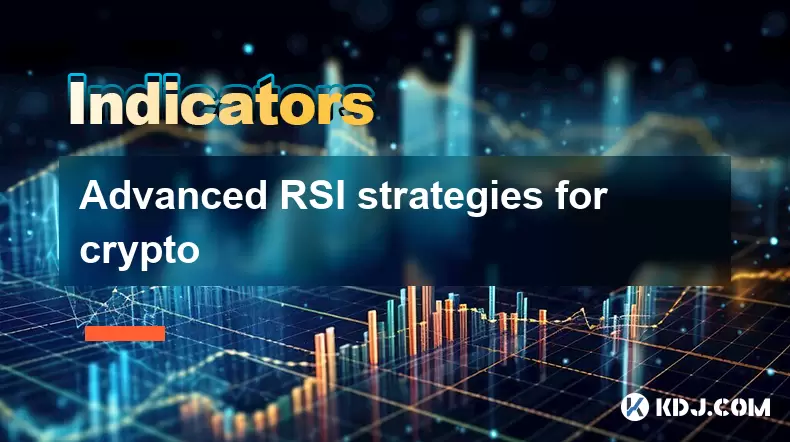
Advanced RSI strategies for crypto
Jul 13,2025 at 11:01am
Understanding the Basics of RSI in Cryptocurrency TradingThe Relative Strength Index (RSI) is a momentum oscillator used to measure the speed and chan...
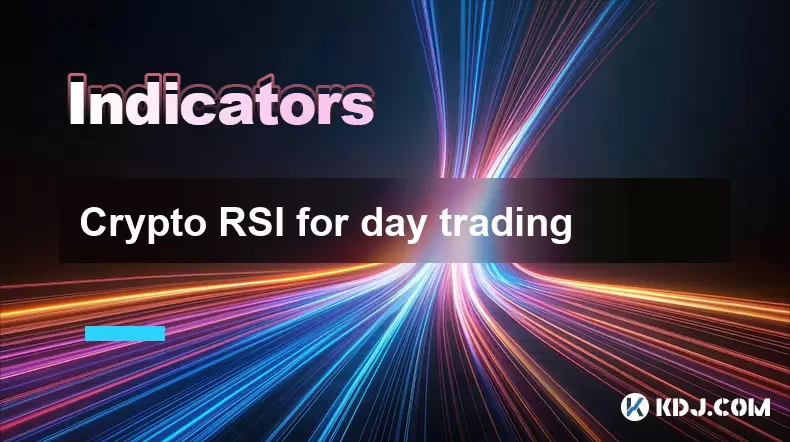
Crypto RSI for day trading
Jul 12,2025 at 11:14am
Understanding RSI in the Context of Cryptocurrency TradingThe Relative Strength Index (RSI) is a momentum oscillator used to measure the speed and cha...
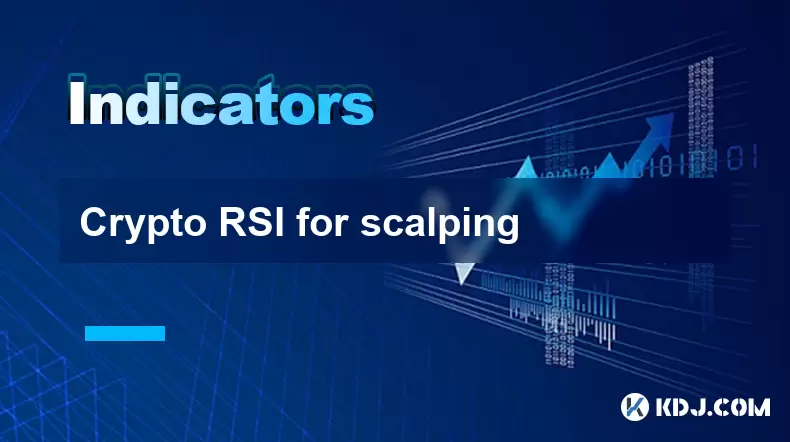
Crypto RSI for scalping
Jul 12,2025 at 11:00pm
Understanding RSI in the Context of Crypto TradingThe Relative Strength Index (RSI) is a momentum oscillator widely used by traders to measure the spe...
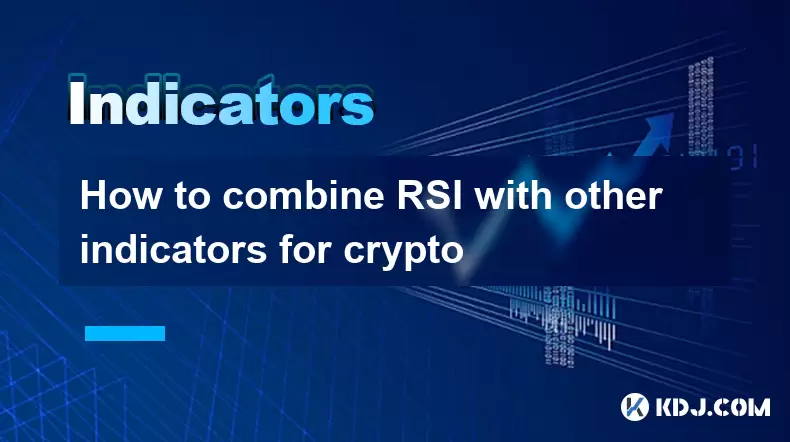
How to combine RSI with other indicators for crypto
Jul 12,2025 at 08:35am
Understanding the Role of RSI in Crypto TradingThe Relative Strength Index (RSI) is a momentum oscillator that measures the speed and change of price ...
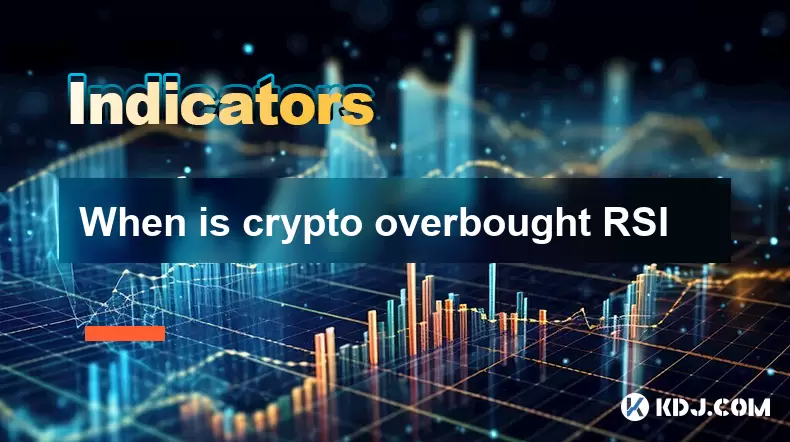
When is crypto overbought RSI
Jul 12,2025 at 11:22am
Understanding RSI in Cryptocurrency TradingThe Relative Strength Index (RSI) is a momentum oscillator used to measure the speed and change of price mo...
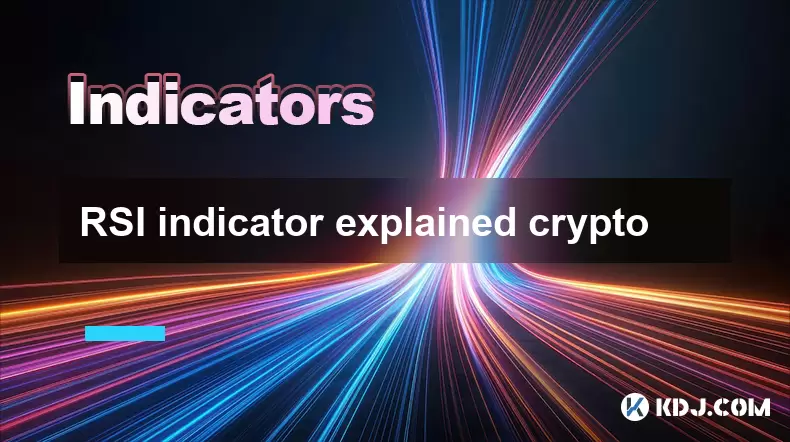
RSI indicator explained crypto
Jul 11,2025 at 03:28pm
Understanding the RSI Indicator in Cryptocurrency TradingThe Relative Strength Index (RSI) is a momentum oscillator commonly used by cryptocurrency tr...

Advanced RSI strategies for crypto
Jul 13,2025 at 11:01am
Understanding the Basics of RSI in Cryptocurrency TradingThe Relative Strength Index (RSI) is a momentum oscillator used to measure the speed and chan...

Crypto RSI for day trading
Jul 12,2025 at 11:14am
Understanding RSI in the Context of Cryptocurrency TradingThe Relative Strength Index (RSI) is a momentum oscillator used to measure the speed and cha...

Crypto RSI for scalping
Jul 12,2025 at 11:00pm
Understanding RSI in the Context of Crypto TradingThe Relative Strength Index (RSI) is a momentum oscillator widely used by traders to measure the spe...

How to combine RSI with other indicators for crypto
Jul 12,2025 at 08:35am
Understanding the Role of RSI in Crypto TradingThe Relative Strength Index (RSI) is a momentum oscillator that measures the speed and change of price ...

When is crypto overbought RSI
Jul 12,2025 at 11:22am
Understanding RSI in Cryptocurrency TradingThe Relative Strength Index (RSI) is a momentum oscillator used to measure the speed and change of price mo...

RSI indicator explained crypto
Jul 11,2025 at 03:28pm
Understanding the RSI Indicator in Cryptocurrency TradingThe Relative Strength Index (RSI) is a momentum oscillator commonly used by cryptocurrency tr...
See all articles

























































































